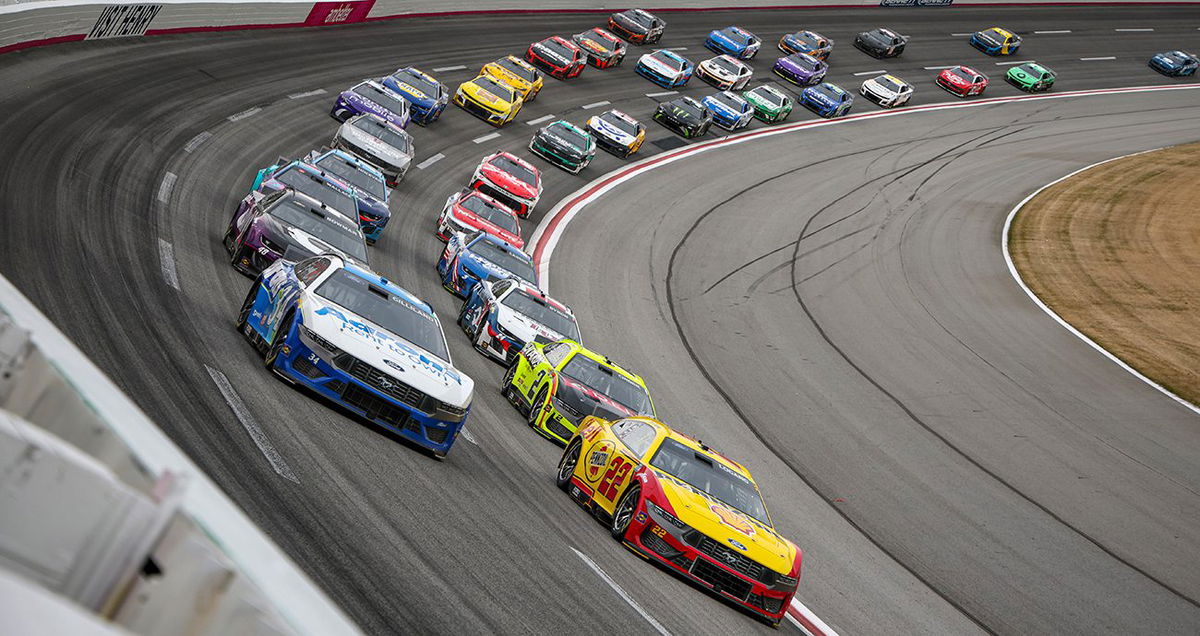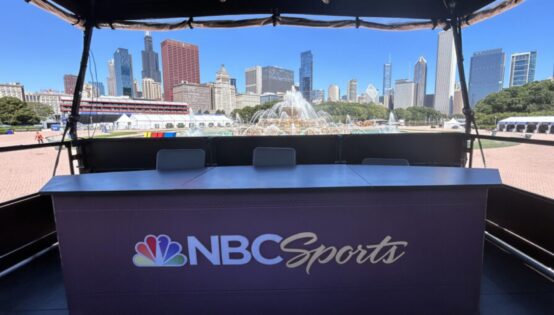



It’s never easy to know when to let go, and NASCAR may be approaching that crossroads. The sport is under pressure, juggling criticism over its playoff system while facing an ugly antitrust lawsuit from 23XI Racing and Front Row Motorsports, a combination that could bring major changes. Adding to the stakes, two years ago, NASCAR secured a seven-year broadcast deal, valued at roughly $7.7 billion, about $1.1 billion annually, cementing its status as a media powerhouse.
Watch What’s Trending Now!
However, the teams suing NASCAR argued that the charter and revenue-sharing system unfairly favored NASCAR, leaving smaller teams struggling. But one NASCAR insider is ready to play the white knight — and with a solution in hand, could this signal the end of the France family’s decades-long grip on the sport?
Kenny Wallace warns NASCAR might need new ownership
Kenny Wallace seems to be asking all the right questions on his namesake podcast. The NASCAR veteran said:
“NASCAR has got so big that it has outgrown them. You look at Formula 1, a media group owns them now. We’re dealing with $1 billion a year contracts. Is it time for NASCAR to sell to NBC? I mean, FOX bought a third of Roger Penske’s IndyCar. Roger Penske owns IndyCar. If FOX TV can buy a third of IndyCar, if Liberty Media Group can own Formula 1, has the sport of NASCAR got so big that it has passed NASCAR, the family? Has it passed them up? I hope not.”
Since Liberty Media acquired Formula 1 in 2017, the series has enjoyed a significant commercial transformation. F1 doesn’t just rely on ticket sales and raising its income; its values are anchored by robust global media and broadcast deals. This income model gives F1 a stable financial backbone, reducing its vulnerability to fluctuations in attendance or single-event revenue.
Similarly, in 2025, IndyCar deepened its roots in media back security when FOX bought a one-third stake in Penske Entertainment, owner of Indianapolis Motor Speedway and IndyCar, locking in a long-term broadcast partnership for the series. Because of these media commitments, which make them less reliant on gate receipts or sporadic sponsorship, both F1 and IndyCar are seen as far more resilient and future-proof than ever before.
However, the same can’t be said about NASCAR, which is owned by the France family. The organization isn’t immune to the media rights boom. The influx of TV and streaming revenue is the lifeline for NASCAR. Even with these blockbuster deals, many in NASCAR would argue the economic model remains deeply fractured.
Because of its massive broadcast deal with FOX, NBC, Amazon Prime, and Warner Bros. Discovery, among others, NASCAR now has a predictable, multi-program revenue stream for years to come. In NASCAR’s case, even with the windfall from media rights, the money doesn’t always trickle down fairly to the teams.

Imago
via sportsvideo.org
According to an analysis, only about 25% of the media rights revenue goes to teams, roughly $275 million per year. This uneven distribution has become a core grievance in the antitrust lawsuit brought by 23XI Racing and Front Row Motorsports.
In 2022, RFK Racing president Steve Newmark mentioned that the 16 teams that owned 36 Cup charters “continue to lose money in this economic model.”
With its new media rights contract, NASCAR is pulling in roughly $1.1 billion per year, a landmark that gives the sport undeniable financial clout. Insiders are aware that this kind of cash, especially combined with structural stress from the ongoing antitrust lawsuit, might be exactly the kind of pressure that forces NASCAR to rethink who controls the sport.
Given these tensions, huge revenue on paper, structural inequalities within the sport, and growing legal pressure, NASCAR may be nearing an inflection point. A potential shift in ownership could redefine NASCAR’s future, especially if the current lawsuit forces broader reforms. As the lawsuit heats up, the fans are fearing the worst; Wallace has also delivered his own take on it.
Kenny Wallace sounds the alarm on NASCAR’s internal turmoil amid lawsuit
Kenny Wallace’s comments on the ongoing NASCAR lawsuit have grabbed attention as the veteran and current broadcaster voiced serious concerns about growing conflict and the reputational risks facing the sport.
Judge Kenneth Bell, who is presiding over the antitrust case, had warned that making the dispute public could destabilize NASCAR. He urged both sides to seek a settlement discreetly, avoiding the exposure of confidential disagreements. Wallace has emphasized how important that warning was, noting that internal criticisms and conflicts among high-level executives have come to light, threatening the sport’s public image.
“Now, respond right here: how many times have I said, ‘Judge Bell said, fix it by yourself, guys. You’re getting ready to burn the house down.’ This is what Judge Bell meant. And I’ve been reminding everybody over and over and over,” the 62-year-old said.
The leak of internal communications has heightened tension between stakeholders and fans, jeopardizing the sport’s unity and credibility. Inside NASCAR, anxiety is growing that the dispute could weaken sponsorship deals, fracture team alliances, and alienate the fan base, particularly at a time when the organization has been trying to expand its following. Wallace stressed that this is exactly what Judge Bell sought to prevent.
“Judge Bell knew that if they didn’t solve it, contracts were going to come out, emails were going to come out – and it’s all coming out,” Wallace added. “And what we found out is that NASCAR executives were bad-mouthing everybody and anybody, and people in the industry were bad-mouthing each other. And this is what Judge Bell meant: you’re going to burn the sport down, because now that’s what they’re doing.”
As the legal battle intensifies, executives, team owners, and fans are questioning whether NASCAR leadership can restore cohesion before lasting damage occurs. The divisions exposed intentions rising; the racing world is watching closely to see whether reconciliation is possible or if this lawsuit will drive NASCAR further apart.


